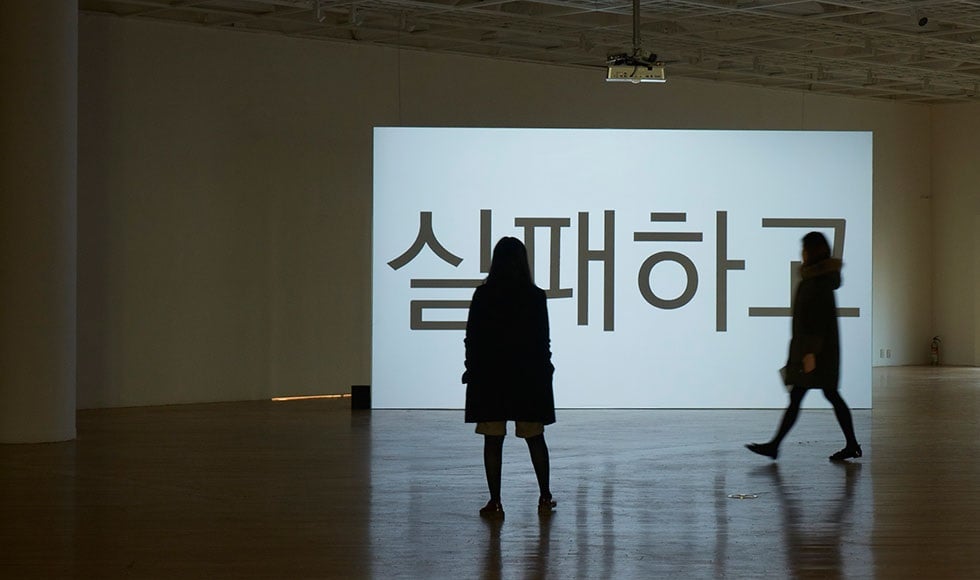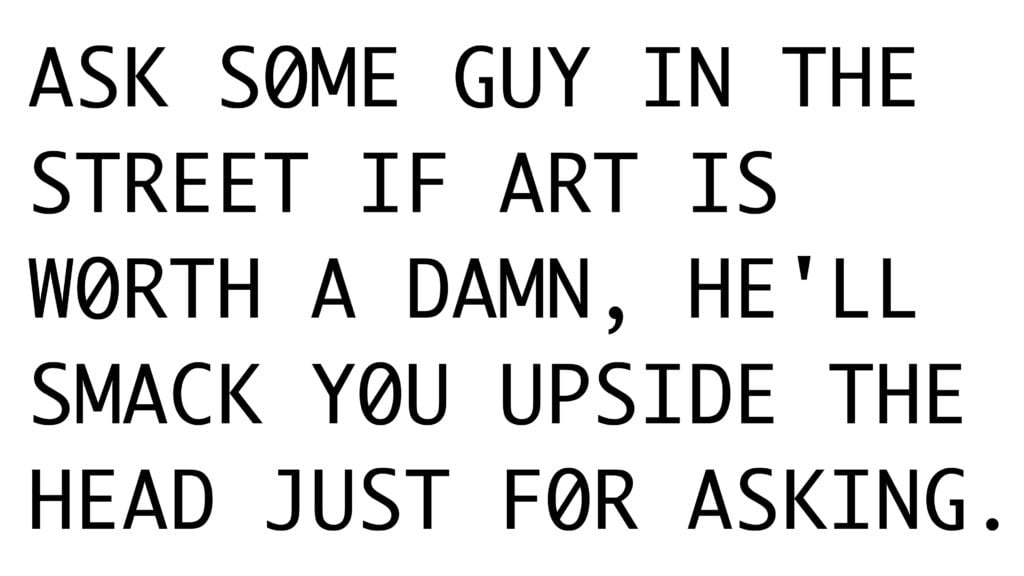Art World
In a Historic Deal, Hong Kong’s M+ Museum Buys All of a Digital Collective’s Existing and Future Work
Internet trailblazers Young-Hae Chang Heavy Industries will deliver new works to curators every six months.

Internet trailblazers Young-Hae Chang Heavy Industries will deliver new works to curators every six months.

Naomi Rea

The M+ museum in Hong Kong has purchased the complete archive of the digital art duo Young-Hae Chang Heavy Industries, including the rights to all future work produced by the internet trailblazers.
After striking the historic deal with the collective, Hong Kong’s museum of 20th and 21st century visual culture now owns more than 500 text-based computer animated works the duo has already made, as well as the rights to everything they will make in the future. The move is unprecedented; no museum has ever secured the rights to a growing archive of work by living artists, let alone one that hasn’t even opened to the public yet.

YOUNG-HAE CHANG HEAVY INDUSTRIES, THE ART OF SLEEP (2006). Still. Courtesy YOUNG-HAE CHANG HEAVY INDUSTRIES
M+, Hong Kong.
When asked whether this means the museum has cornered the market for the artists, Suhanya Raffel, the executive director of M+, tells artnet News: “The artists are able to sell remaining individual editions, however, they cannot sell their entire body of work to another collector.” She explains that all their work so far has between three and five editions, none of which has sold out. As for works made in the future, Raffel says that each will have two artist proofs, with one belonging to the artists and the other delivered to M+ on a six-month cycle, adding that the artists are not required to make a minimum number of additional works.
“This is all to say that the M+ relationship does not restrict them from undertaking other projects and commissions,” Raffel explains. “In fact, we hope that by raising their international profile even higher, their practice will go from strength to strength. Our collection will continue to benefit from each and every opportunity they receive, and each new project they take on.”
“We’re lucky dogs,” the duo says in a statement announcing the acquisition, although the the museum declined to disclose the price agreed upon for the momentous exchange. Just in case, we asked the artists via email how much the deal had set the museum back and they told us, tongues firmly in cheek, “$ plus bus fare.”
The Seoul-based digital art duo is made up of the South Korean artist Young-Hae Chang and the US artist Marc Voge. They launched Young-Hae Chang Heavy Industries in 1999 and were among the first wave of artists to use the internet as a platform for their art. Over the past two decades, they have created witty takes on media, technology and globalization in their kinetic typography-style work. The collective’s work has been made in 26 languages, and the archive acquired by the museum includes items posted on their website through to gallery installations and lectures. It also includes translations and drafts of their work, some of which has yet to be published or exhibited.
“We are extremely proud to be investing in the life’s work of Young-Hae Chang Heavy Industries, the trailblazer of internet art,” Doryun Chong, the museum’s deputy director and chief curator says in a statement. He says the acquisition “is an excellent fit for M+, a new museum of contemporary visual culture located in Asia, where the largest number of netizens reside, and where most innovations for the future are born.”
Although its collection is growing, the M+ museum’s home is still under construction in Hong Kong’s West Kowloon Cultural District, an ambitious cultural quarter for the city that has been in the works since 2013 and when completed will contain theaters, performance spaces, museums, and miles of public space.
The construction on M+, which will be one of the largest museums of Modern and contemporary visual culture in the world, has been plagued with delays. Initially slated to have been finished by now, in 2015 its expected completion date was pushed back to 2019. Recently, the West Kowloon Cultural District axed the contractor for the building work, Hsin Chong Construction, claiming the company was insolvent. The contractor’s parent company, the Hsin Chong Group, has disputed this claim, adding that the contract for the HK$5.9 billion ($756 million) project has not been formally terminated.